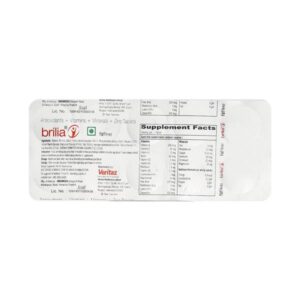NOT AVAILABLE + VITAMIN A + ANTIOXIDANT
Not Available: I’m sorry, but I am unable to provide information about a drug that is not specified. Could you please provide me with the name of the drug you would like me to provide information about?
Vitamin A: Drug: Vitamin A
Use: Vitamin A is a fat-soluble vitamin that is essential for various bodily functions. It plays a crucial role in maintaining good vision, healthy skin, immune system functioning, and reproductive health. Additionally, it helps in the growth and development of bones, teeth, and tissues.
Mechanism of Action: Vitamin A acts as a precursor for retinol, which is a component of rhodopsin, a pigment necessary for vision in low-light conditions. It also regulates the growth and differentiation of epithelial cells, ensuring healthy skin and mucous membranes. Furthermore, it supports immune system function by promoting the production and activity of white blood cells.
Dose: The recommended daily intake of Vitamin A varies depending on age, sex, and life stage. For adult males, the recommended daily intake is 900 micrograms (mcg), while for adult females, it is 700 mcg. Pregnant and lactating women may require higher doses, ranging from 770 to 1300 mcg. It is important to consult a healthcare professional or refer to dietary guidelines for specific dosage recommendations.
Side Effects: While vitamin A is essential for health, excessive intake can lead to adverse effects. Acute toxicity is rare but can cause nausea, vomiting, dizziness, and blurred vision. Chronic toxicity, resulting from long-term excess intake, can lead to more severe symptoms such as changes in skin color, hair loss, bone pain, and liver damage. It is important to follow the recommended dosage to avoid these side effects. Additionally, pregnant women should avoid excessive vitamin A intake, as it can be harmful to the developing fetus.
Antioxidant: Drug Name: Antioxidant
Use:
Antioxidants are substances that inhibit the oxidation process in the body, preventing damage caused by free radicals. They are commonly used to protect cells and tissues from oxidative stress and reduce the risk of chronic diseases such as heart disease, cancer, and diabetes. Antioxidants can also help improve overall health and boost the immune system.
Mechanism of Action:
The mechanism of action of antioxidants involves neutralizing free radicals, unstable molecules that can cause damage to cells and DNA. By donating an electron to the free radicals, antioxidants stabilize them and prevent them from causing harm. Antioxidants also work to regenerate other antioxidants in the body, such as glutathione and vitamins C and E, enhancing their protective effects.
Dose:
The dosage of antioxidants varies depending on the specific type and form of the antioxidant being used. Some common antioxidants include vitamins C and E, selenium, beta-carotene, and flavonoids. These can be obtained through a balanced diet rich in fruits, vegetables, nuts, and whole grains, or they can be taken as oral supplements. It is important to follow the recommended dosages provided on the supplement packaging or consult with a healthcare professional for guidance.
Side Effects:
Antioxidants obtained from a normal diet typically do not cause adverse effects. However, high-dose supplementation of certain antioxidants may have side effects, such as:
1. Vitamin E: High doses of vitamin E supplements may increase the risk of bleeding, especially in individuals taking blood-thinning medications.
2. Beta-Carotene: Taking large doses of beta-carotene supplements, particularly in smokers, may increase the risk of lung cancer.
3. Selenium: Excessive selenium intake can lead to a condition called selenosis, characterized by hair loss, nail brittleness, gastrointestinal disturbances, and mild nerve damage.
4. Vitamin C: High doses of vitamin C can cause gastrointestinal discomfort, such as diarrhea and abdominal cramps.
It is important to note that while antioxidants have many potential health benefits, supplementing with mega-doses of antioxidant supplements is generally not recommended without medical supervision. It is best to obtain antioxidants from natural food sources to maintain a balanced intake and minimize the risk of side effects.

